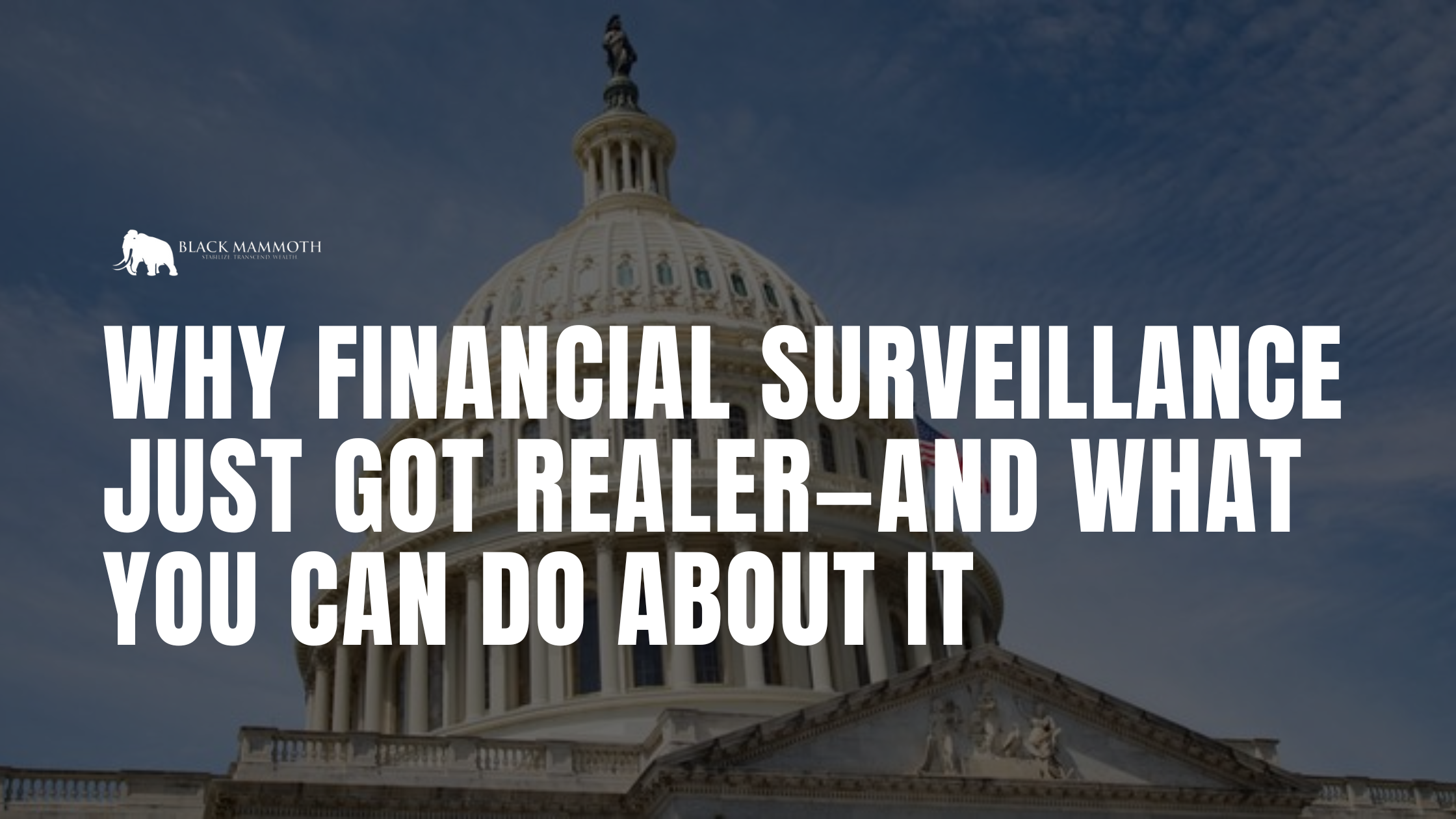Why Financial Surveillance Just Got Realer—And What You Can Do About It
Let’s get all the way real: the IRS is watching. And under the new tax bill—the One Big Beautiful Bill Act—it’s watching even harder if you’re low-income, self-employed, or getting money outside the traditional 9-to-5 system.
Here’s the bottom line: this bill expands financial surveillance and audit pressure—not on billionaires, not on corporations—but on working-class people who rely on tax credits to survive.
WHAT’S CHANGING?
The bill gives the IRS new power and funding to:
Enforce mandatory SSN verification for every person listed on a tax return to qualify for credits
Expand audit targeting for credits like the Earned Income Tax Credit (EITC) and the Child Tax Credit (CTC)
Require additional documentation from filers flagged as "high-risk"—which disproportionately includes:
Low-income earners
Self-employed and gig workers
Cash-based businesses (barbers, nail techs, caregivers, food vendors)
This isn't about stopping fraud. It's about making it harder for people who already qualify to prove they qualify.
WHO GETS TARGETED?
Let’s be clear—this doesn’t impact everyone equally. The data shows:
Audit rates for EITC filers are already higher than for the top 1% of earners
Barbers, stylists, and street vendors face scrutiny for unverified income
Undocumented and mixed-status families often can’t meet new SSN requirements—even if their children are legal citizens entitled to benefits
Home-based businesses and side hustles (which are more common in BIPOC communities) face disproportionate pressure to document every dollar
This is what financial policing looks like in real life: push the paperwork burden down to the folks least equipped to carry it.
THE REAL IMPACT? FEAR.
Here’s what happens when surveillance increases:
Families who qualify stop applying for EITC/CTC because they’re scared
Tax season becomes a time of panic, not relief
Hustlers underreport income to stay under the radar, which hurts them long-term
People working legally feel criminalized for surviving
This builds a culture of fear around one of the few wealth tools low-income families actually have access to.
ACTION STEPS TO PROTECT YOURSELF
You can’t afford to sit back and "hope the IRS doesn’t pick you." You need a proactive plan. Here’s where to start:
1. Get Documented—Even If You're Paid in Cash
Keep daily income logs: date, service/product, amount received
Deposit cash into a business account when possible
Use a POS system or app (like Square or Venmo Business) to create paper trails
2. Save Everything
Childcare receipts, medical expenses, utility bills—anything that proves household composition or dependency
Keep a tax folder, digitally or physically
3. Know the EITC and CTC Rules Inside and Out
These credits are powerful but complex. Use the IRS website, trusted nonprofits, or certified tax pros to learn the latest requirements
4. Don’t DIY If You’re Self-Employed
Get a tax preparer who specializes in low-income or self-employed clients
Ask them how they’ll help you document everything—not just file
5. If You’re a Mixed-Status Family—Get Legal Help
Immigrant rights orgs and tax legal clinics can help you navigate eligibility under new SSN rules
FINAL WORDS
Tax time should be an opportunity—not an ambush.
But this system was never built to be fair. So we fight back by getting educated, getting organized, and getting everything in writing.
They’re betting you won’t keep good records. They’re hoping fear will silence you.
Prove them wrong.
Because the money you’ve earned, the credits your kids are entitled to, and the business you’ve built from scratch—all of it deserves to be protected.
Let’s build.

